




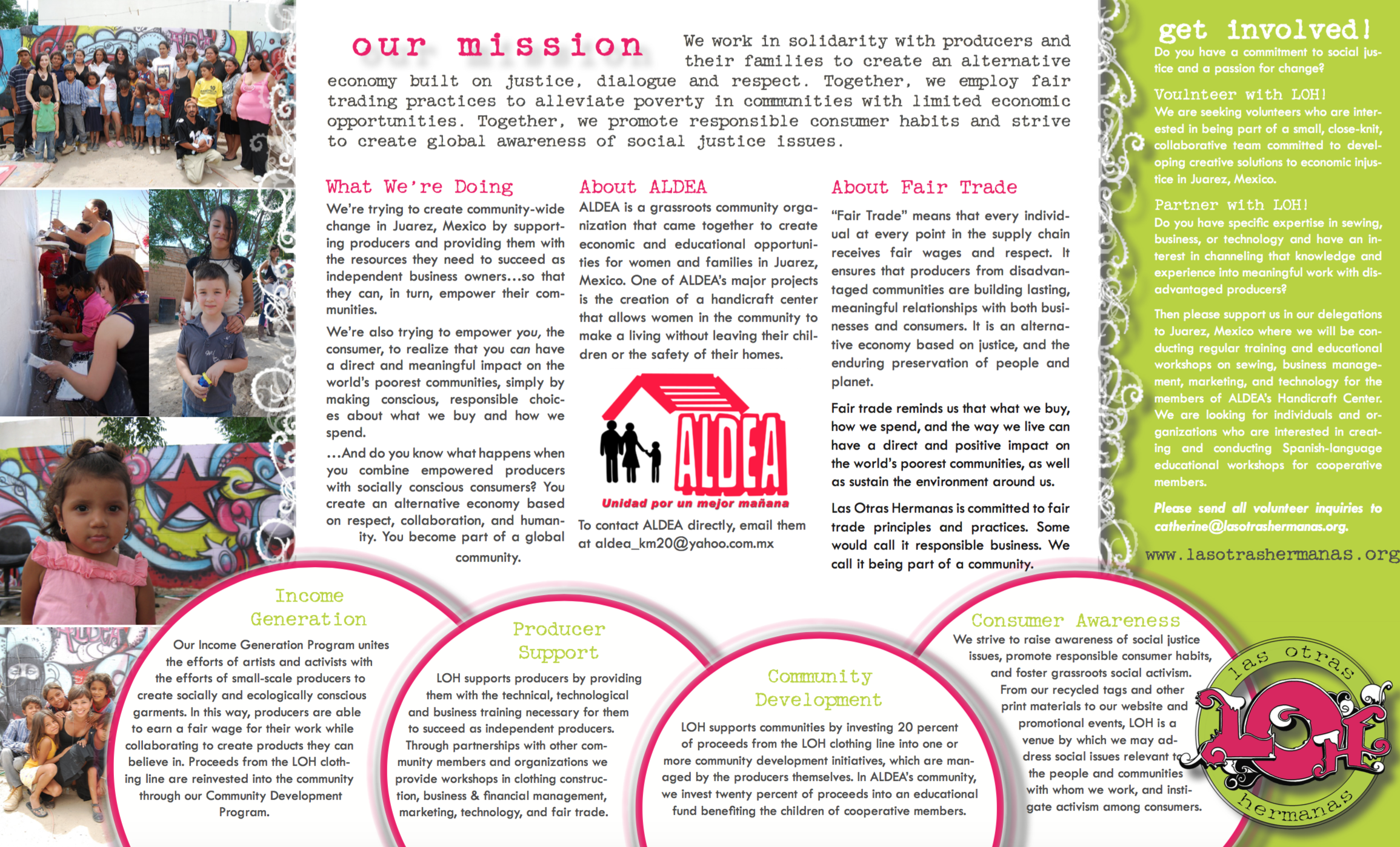
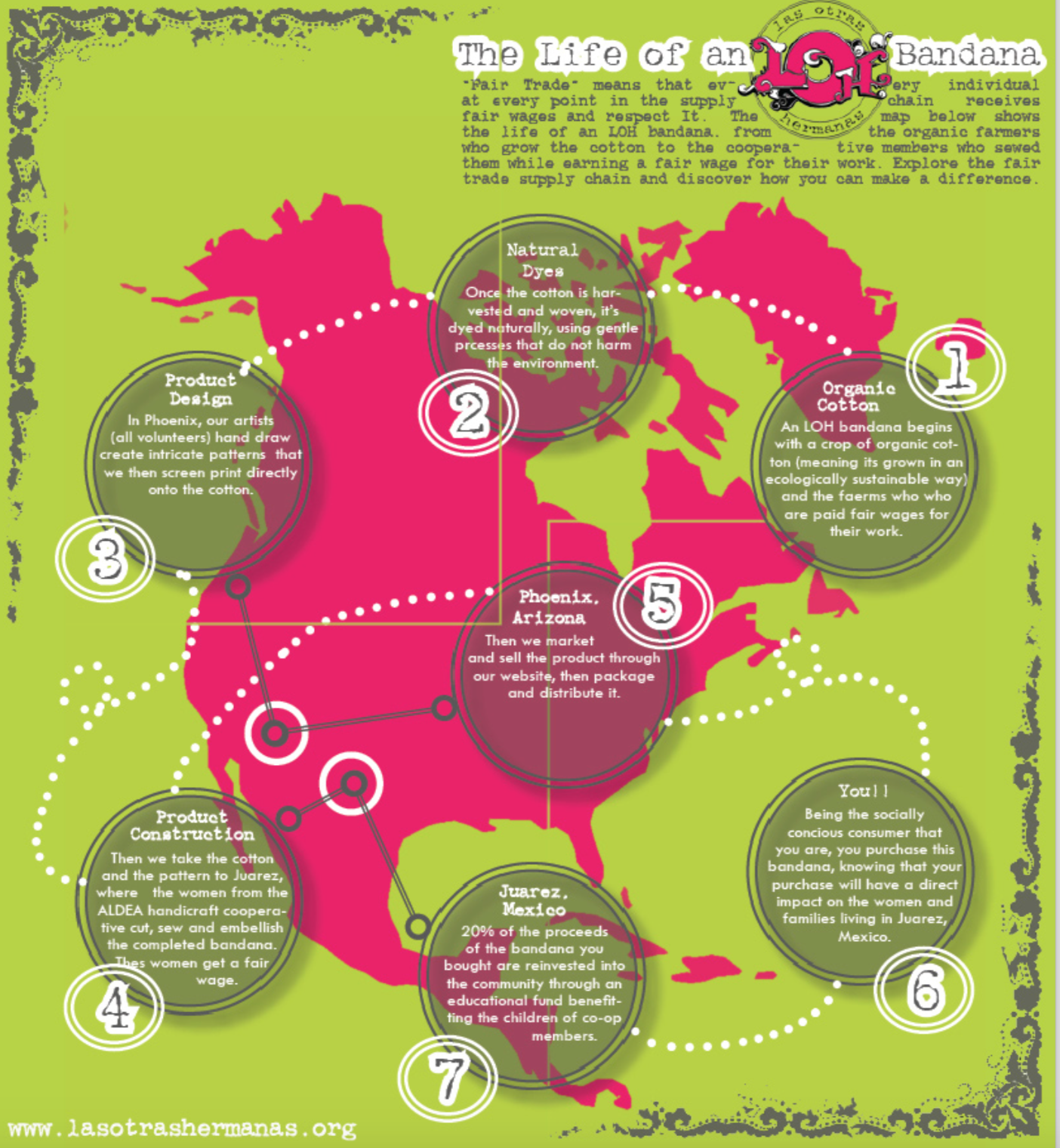



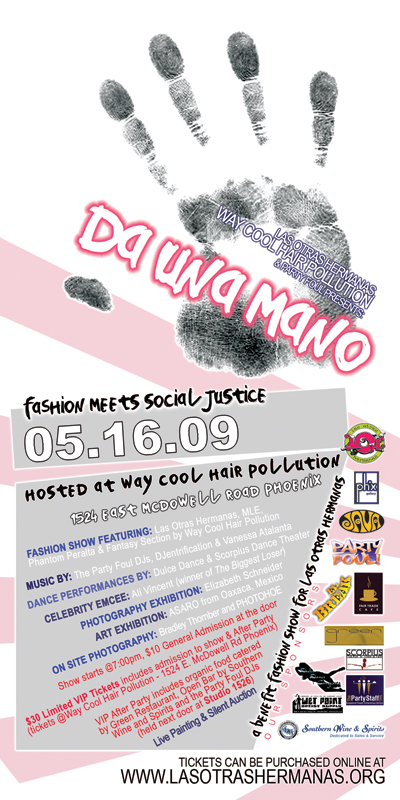

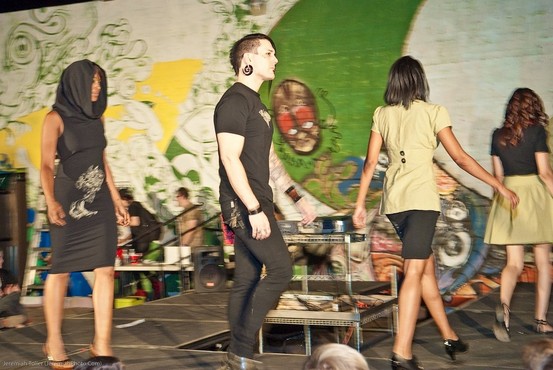
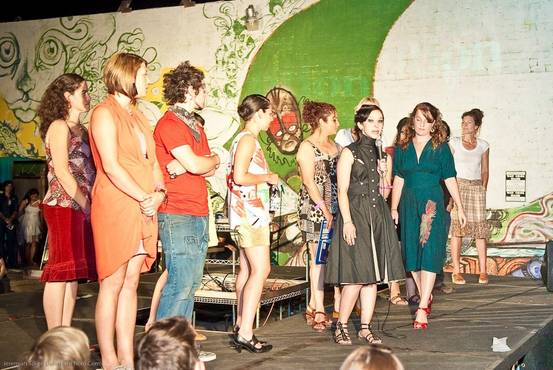






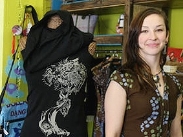










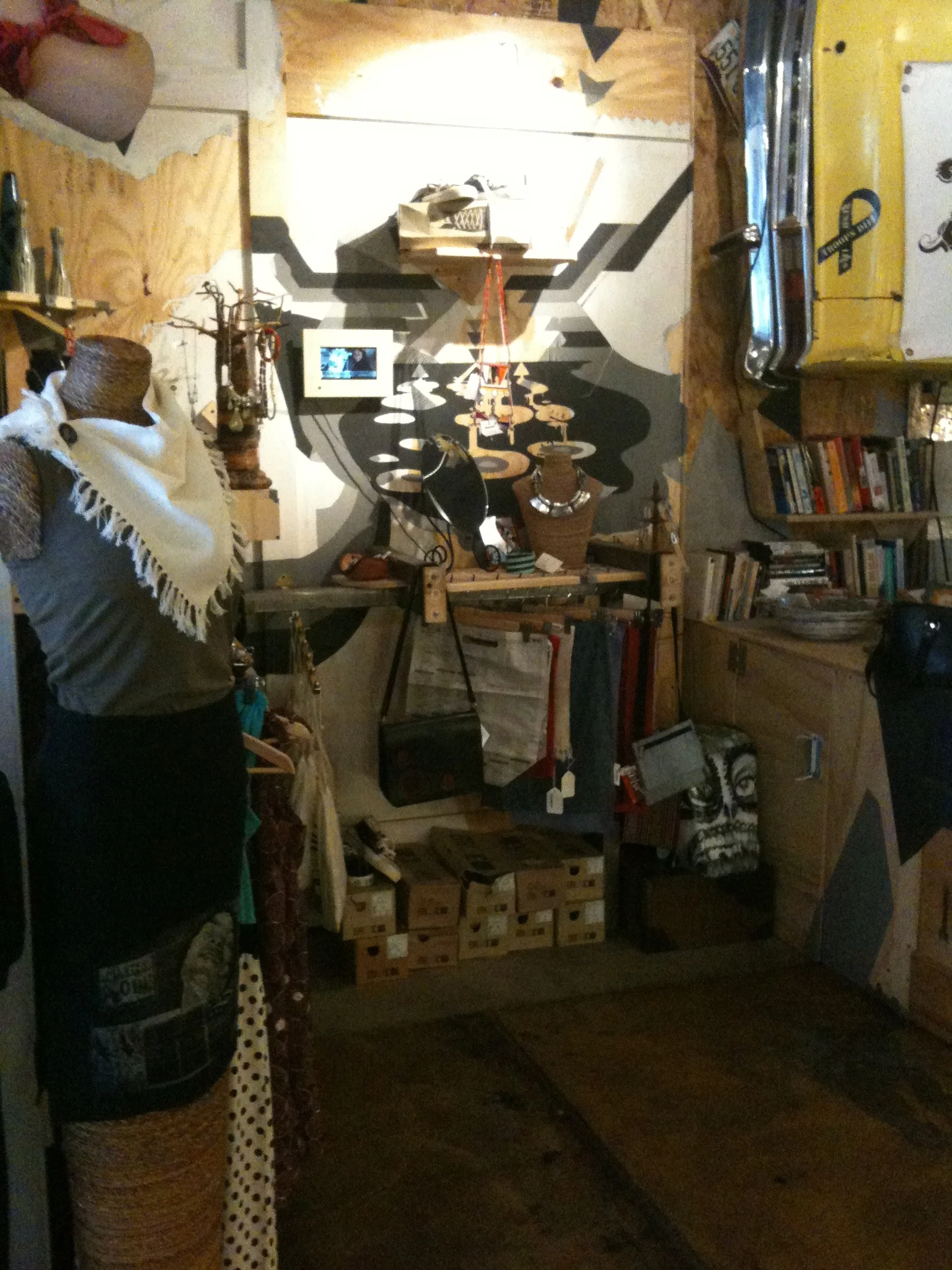




In 2008 I designed and built an international fair trade organic nonprofit social enterprise to address complex social and economic violence women face in Mexico, the unequal globalization trade market, to create a vehicle for the voice of these issues to come into my own community to create awareness of how our economic and political choices impact the lives just across the border in extreme ways to inspire accountability and new ways of doing things in my own local community. The aim was also to provide fashionable affordable ethical sustainable clothing for a frequently neglected fair trade market 18-28 year olds.
The final results were a fair trade organic supply chain from cotton to end product within Mexico benefiting two elaborate communities of women in Oaxaca and Juárez, an established local fair trade movement in Phoenix, a fair trade boutique with ethical and sustainable products from around the world.
Located just across the street (& border) from El Paso, TX is Ciudad Juárez, Mexico, the location of ALDEA, the partner organization participating in and building Las Otras Hermanas, a Nonprofit Social Enterprise resulting from work and research leading to this particular social design by Charis Elliott.

My First trip to Juárez, Mexico where I met with members of the community group, ALDEA, and learned about their vision for their community. As synchronicity had it, we held the same vision and passions. Bringing an artist from Phoenix, and including the community kids, we collaborated on a mural on the wall next to the building site. This was the beginning.

My next visit involved immersive listening and data collection to learn in depth about the vision and the needs of the community. Collectively we drafted the framework for our collaborative partnership moving forward.

“We work in solidarity with producers and their families to create an alternative economy built on justice, dialogue, and respect. Together, we employ fair trading practices to alleviate poverty in communities with limited economic opportunities. Together, we promote responsible consumer habits and strive to create global awareness of social justice issues.”

Inside of LOH Brouchure Highlighting our mission, structure, partnership, introduction to fair trade. Upon starting LOH I partnered with a professor at Arizona State University to do market research on campus to learn about how many students knew what Fair Trade was, 1 out 400 did, which was why I created the Consumer Awareness program and started a United Students for Fair Trade group on campus with programmed film screenings and events, that led to years of success resulting in fair trade awareness so broad that the campus store even sales fair trade items today.

From seed, cotton, textile, to finished bandana (and all of the LOH products), it was fair trade and organic. Back of LOH Brochure.

This is Laura, a member of ALDEA.
After a series of sewing training, the dedicated members of ALDEA were able to produce the LOH full clothing line.

Cassy & Charis presenting a welcome and introduction to Vero who traveled from Juárez to speak on behalf of ALDEA at Da Una Mano Benefit show.

The samples after learning a new design and new techniques using the new sergers after a sewing training class.

I partnered and worked with artists in Oaxaca, Mexico, members of ASARO artist collective, who were commissioned to create art specific for us to use on clothing. They were also then directly introduced and connected to ALDEA in Juárez, Mexico. This particular piece was used on a skirt.

Maria, on the right, owns and manages the weaving studio in Oaxaca, Mexico, where I met her team and built a partnership with her to provide fair trade textiles to be sent to Juárez, Mexico for finishing. The cotton is grown locally in the sierras, just outside of her town, and the cotton is purchased in a local market, then processed and organically and hand dyed at the studio before being weaved on a traditional weave.

the label inside items made from the textiles sourced in the LOH built supply chain within Mexico. I sourced from within Mexico to reduce the overall environmental impact of the products, to further connect communities, and build our own supply chain from seed to finished product as close as possible.

LOH Governing Board Members Delegation to learn about the newly designed scarf. The cotton was organically grown, spun, naturally hand dyed and woven in Oaxaca, Mexico and shipped to Ciudad Juárez, Mexico for cutting, sewing and finishing. From the planting of the seed to the finishing touches, every person involved was paid a sustainable wage under Fair Trade principles. By Creating a new supply chain domestically within Mexico I was able to reduce our emissions impact and connect likeminded communities.

I traveled back to Oaxaca, Mexico after I had traveled there on assignment as an assistant in graduate researcher, as an undergraduate. I had conducted market research on local indigenous artisanal products, the flood of counterfeit products made in China, and the artisanal resistance movement to counter such influx. Among many other things I learned about local production, dying and weaving of garments and rugs. This gave me insight into knowing there is a possibility of a domestic source for textiles. My next trip was solo with an aim to seek out an existing supply chain to create textiles specific for Las Otras Hermanas. I came to learn about how almost all of the cotton used for weaving indigenous artisanal made garments comes from a factory near Mexico City that dyes and processes the cotton from China. In the country side market after many disappointing dead ends I managed to meet Maria, who owns a shop selling handmade items that come from her home where she owns several wooden looms and only uses cotton she buys in the market from the farmers in the nearby sierras. After a horse ride, a beverage and a few hours of talking we find we have complimentary if not similar principles and visions for ethically preserving indigenous arts, and local farming communities through fair trade practices, while reaching a broader market with new designs.
The cotton was grown in sierras of Oaxaca, hand spun and naturally dyed using Cochineal to creating the vibrant red. I started with the textile available to create the design. After a series of sample making of tops, dresses and more, I finalized this scarf as the best choice. This design maximized the use of the fabric in its set demensions with zero waste. The buttons are all matching vintage buttons.

As part of community involvement in Juárez, we regularly Joerael, our resident artists to engage the local youth and paint murals around the community. More info on his work: www.Joerael.com

As part of the mission and focus of LOH the need for this work to be done specifically in Juárez, Mexico was due to the history of the femicide. I regularly took volunteers, interns, students and my Governing Board members to visit Juárez to learn in depth about the issues members of ALDEA faced, why the work was important, and how LOH was making a change.

This is Laura from ALDEA, the Civil Association I partnered with in Juárez, Mexico. She discusses some of the projects that were done prior to our partnership and a bit about her life and vision for her community.
Through the Community Development Fund Las Otras Hermanas was able to assist in getting ALDEA their Civil Association status (equivalent to Non-profit status here in USA) and secure land the neighborhood lot they had struggled to obtain for almost a decade prior. The lot was then used to build a community center for the children and families.
In the background tote bags are being up cycled from the coffee shops' old burlap shipping bags, for sale at the coffee shops and Farmers' Markets.